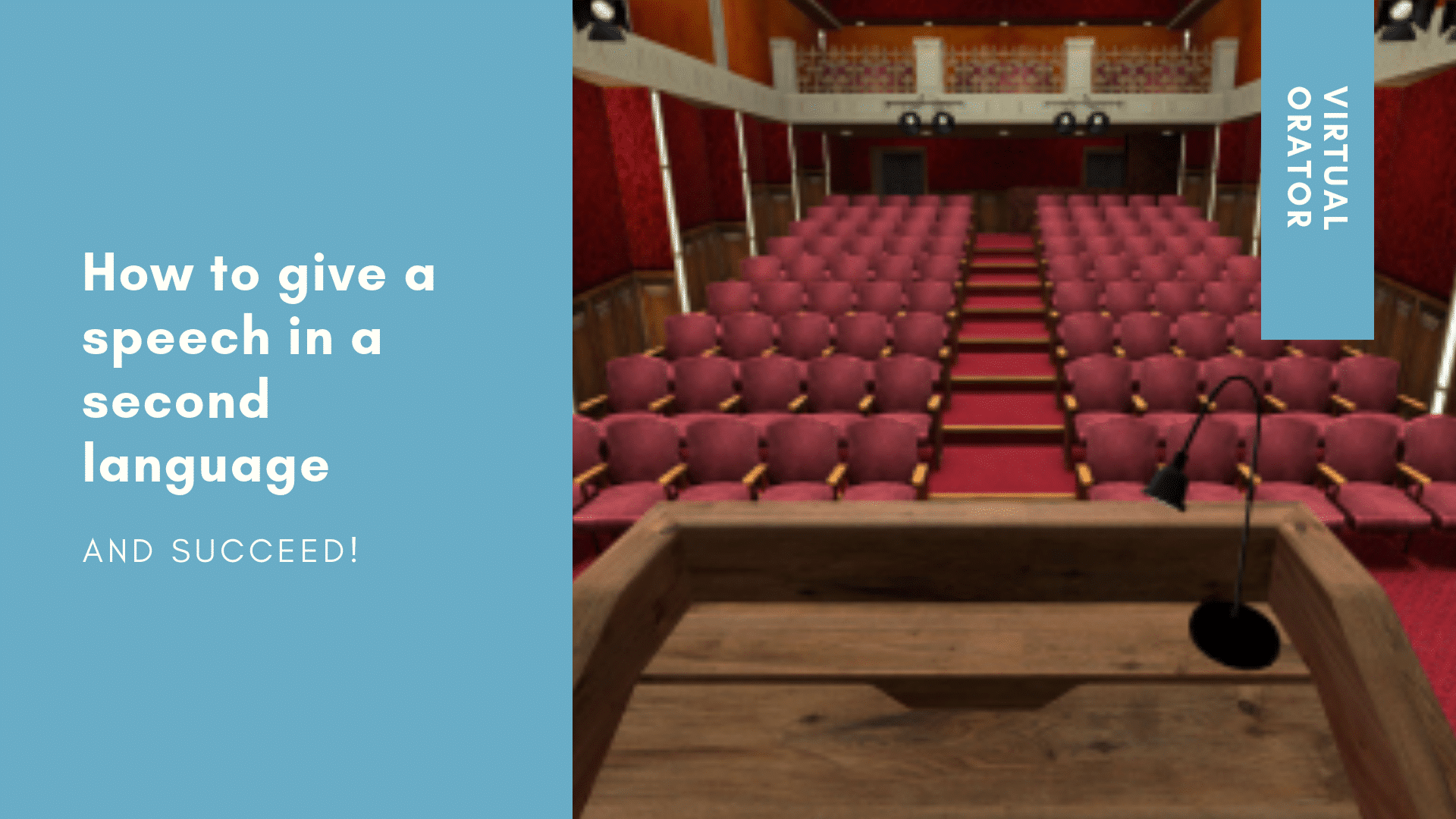Your cart is currently empty!
Speaking or presenting in public is, generally, a great source of anxiety and insecurity. Doing it in a foreign language can make the experience even more overwhelming and frightening.
Many of Virtual Orator’s clients are people who need to do public speaking in English, which is a second language for them. More than anything, they need to train.
Learn how to deliver your message in the new language
Fight your insecurities through preparation. If you’re making a presentation, it is probably because you are knowledgeable about your topic, and that knowledge is the most important!

To speak confidently about a topic, you must know the relevant terms and vocabulary. Learn the key words and phrases you’ll be using. Then, say out loud the difficult words, until you get comfortable pronouncing them.
Keep your speech simple! You’re not a native speaker, and they know it. Avoid unnecessary “sophisticated” words or sentences. Try to impress them with your knowledge about the topic instead.
Don’t be too upset by grammar mistakes. A presentation is enjoyable when it is fluid and confident. If you’re too worried, you’ll be pausing all the time, and it will be noticed. Your audience will not be as harsh on you, as you are. I promise!
Instead, focus on enriching your vocabulary and improving your pronunciation. And if you need to, talk slowly. This is especially helpful if you have a difficult accent. Speak up and talk slowly!
When the big day arrives, what you really must know very well is your message. If you mispronounce a word, say it again. If you don’t remember how to say something, ask your audience. You’ll not only solve the problem, but it will also get them more engaged!
Extra help to grow your confidence
Your memory can fail you, especially in stressful situations. Write yourself brief notes. Focus on the structure of your speech, using keywords or key sentences to help you remember what you wanted to say. With good preparation, you’ll probably not even need them.
Another extra help used in most speeches is slide presentation. Keep them simple! Consistency is the keyword for good public speaking. You don’t want your slides to look like someone else wrote them.
“Q&A sessions are often the hardest part, as they require on the fly listening, synthesis, and speaking skills. Get someone who you understand well to help by repeating the questions clearly and in simpler terms. This will help you and an international audience too.”
Dr. Kristopher J. Blom
Focus on culturally adapting your speech
If you are giving a speech in a foreign language, you’d probably be in a foreign country or at least with a foreign audience. Be careful not to be offensive or inappropriate. Due to cultural differences, what’s acceptable for you, might not be to your audience.
Think in the language you’re speaking. Every language has its specific ways of expression. Literal translations may be grammatically correct, yet, culturally odd. As a non-native English speaker myself, I often heard “Well, it’s not exactly wrong… but a would never speak like that!”
Also, don’t forget to adapt your references. As we talked in a previous post, it’s all about your audience, so give them examples that are familiar to them. Keep in mind that jokes don’t work equally in every language and country. Gather as much information as you can about the country and culture to avoid awkward situations.
Over-prepare!
Good speakers prepare their speech carefully, training it as much as they can. Know your topic very well and show how passionate you are about the subject. You can ask your audience directly if they need you to repeat or if they understood what you just said.
Do it if they look confused or if you are not sure that you expressed yourself correctly. However, avoid the temptation to make these questions frequently, or you’ll look insecure and looking for an excuse.
Your audience will not hate you for minor mistakes you may do when speaking their language, they will be impressed that you’re trying. Don’t you, when you meet a foreign person trying to speak your language?
At the end of the day, the secret is to surprise them! It will always work with every audience from every country or language. Surprising your audience helps to get their engagement.
Did you ever have the need for public speaking in a second language?
Tell us about your experience in the comments below.
Cátia is a psychologist who is passionate about helping children develop and train social skills.



Leave a Reply